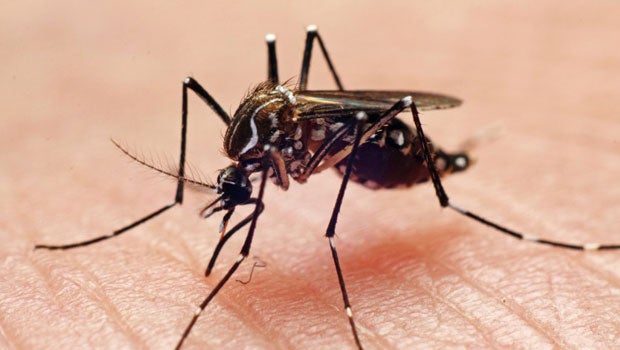
Duke-NUS Medical School study findings show the dengue virus has the ability to alter its structure to evade a host’s immune response, existing vaccines and therapeutics.
Singapore saw 1,158 dengue cases in the week ending 13 June 2020, the highest number of weekly dengue cases ever recorded since 2014*. The dengue virus serotype 3 (DENV3), which is currently circulating in Singapore, can undergo dramatic structural changes that enable it to resist vaccines and therapeutics, reveal findings from a study by scientists from Duke-NUS Medical School. The findings, published in Nature Communications, could guide the development of effective vaccines and therapeutics against dengue infection.
Dengue infections are rising, even as public health authorities are battling to contain the spread of the coronavirus. Dengue virus serotype 2 (DENV2) had previously been the predominant serotype but DENV3 has re-emerged in Singapore after almost three decades. This means the Singapore population has lower immunity to DENV3 and, consequently, a large proportion of the population is susceptible to DENV3 infection.
So far, there are no highly protective vaccines or therapeutic agents that target DENV. This is due to the possibility that antibodies raised against any one of the four known serotypes (DENV1-4) may enhance disease severity when an individual is infected with a different serotype in a secondary infection. This suggests an effective vaccine has to be able to stimulate equally strong protective responses simultaneously against all four serotypes. Adding further complication to vaccine development is the fact that there are different virus strains within each serotype, and different strains can exhibit vastly different shapes, enabling them to escape detection by a host’s immune system. The Duke-NUS team had previously discovered that the surface of the DENV2 can change from smooth to bumpy depending on host conditions.
“Previous structural work focused mostly on DENV2, and therefore the other serotypes that are equally important are not well studied,” said Professor Sheemei Lok from the Duke-NUS’ Emerging Infectious Diseases (EID) programme and corresponding author of this study. “In this study, we found that DENV3 can dramatically transform itself from a smooth, round particle to a club-shaped particle — like golf clubs, which would help the virus to evade hosts’ immune response, vaccines and therapeutics.”
The team also found some strains capable of transforming into club-shaped particles in DENV1, DENV2 and zika, though these exist as a minority of the virus population. Nonetheless, this suggests that flaviviruses have the potential to turn themselves into a conformation that is vastly different from their original structure, which can make vaccines and therapeutics ineffective against them.
“While Singapore has seen a recent spike in dengue cases, annually this virus infects about 400 million people worldwide, with a high prevalence in tropical and sub-tropical regions. In line with Duke-NUS vision of transforming medicine, this study gives new direction to developing better therapies and vaccines to treat or prevent dengue infections, and contribute to public health outcomes,” said Prof Patrick Casey, Senior Vice Dean for Research at Duke-NUS.
The team is currently studying more DENV3 clinical strains to determine if this structural transformation is common.
Reference: Seamus R. Morrone , Valerie S. Y. Chew, Xin-Ni Lim, Thiam-Seng Ng, Victor A. Kostyuchenko, Shuijun Zhang, Melissa Wirawan, Pau-Ling Chew, Jaime Lee, Joanne L. Tan, Jiaqi Wang, Ter Yong Tan, Jian Shi, Gavin Screaton, Marc C. Morais and Shee-Mei Lok (2020). High flavivirus structural plasticity demonstrated by a non-spherical morphological variant. Nature Communications.
Complete research paper available at this link: https://www.nature.com/articles/s41467-020-16925-y
* Data sourced from National Environment Agency
For media enquiries, please contact Lekshmy Sreekumar, Duke-NUS Communications.













 Get it on Google Play
Get it on Google Play